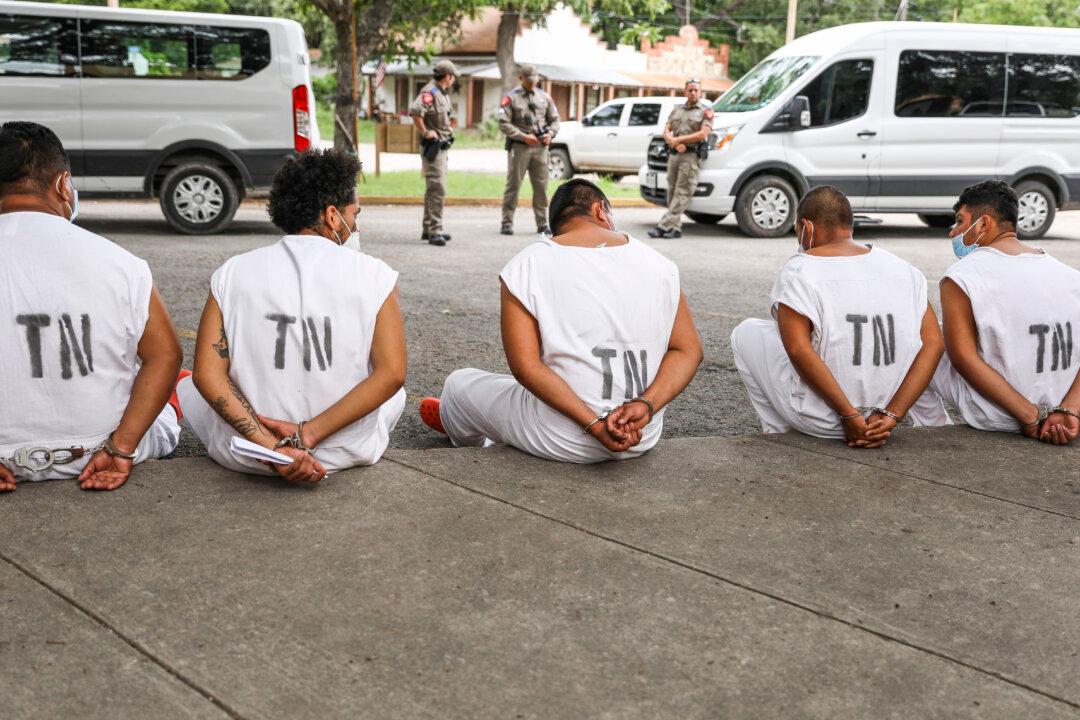BRACKETTVILLE, Texas—Texas state troopers have started delivering van-loads of illegal aliens to the Kinney County Sheriff’s Office to be charged with criminal trespass.
The parking lot and an old steel picnic table under a tree outside the sheriff’s office have become a proxy booking center as the building is more suited for the crimes of a quiet, rural county of 3,600 residents.





